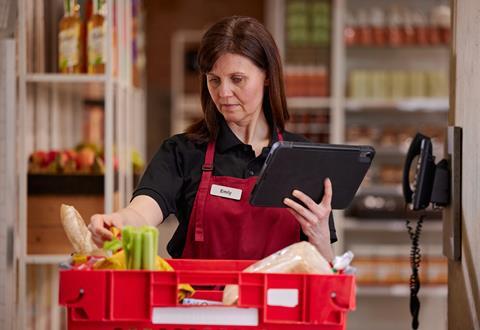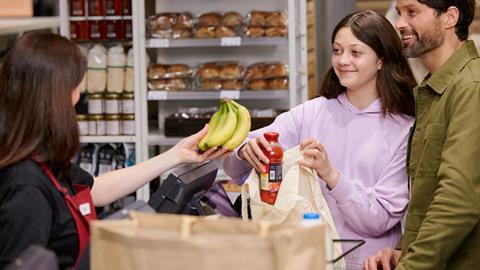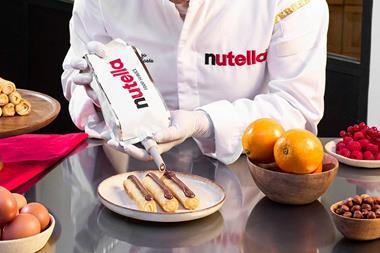The potential of payment processing is often underestimated in the retail environment. Find out how grocery retailers are missing an opportunity to reap multiple benefits from the payment transaction process.
With the omnichannel world rapidly developing in grocery, consumers’ expectations of a retailer’s performance are ramped up, and there is little doubt that they will vote with their (increasingly virtual) feet if any payment difficulties are encountered.
Yet while it’s acknowledged that “frictionless online shopping and payment experiences can help retailers attract more customers and improve their brand perception”, getting the payment experience right goes far beyond just the actual transaction – and it’s an area that has mostly been underestimated by grocery retailers.
As US management consulting company Oliver Wyman noted in a recent report: “Retailers have generally been very attentive to providing a differentiated and enjoyable customer experience but have neglected the payment dimension.” And, as the company also points out: “Payment is a crucial and largely untapped opportunity for retailers to increase revenues and improve profitability.”
So, while frictionless payments are central to a customer’s experience of a retailer’s services, for the retailer there’s a much broader competitive scenario evolving, as ‘value beyond payments’ comes to the fore.
Another study by professional service partnership Ernst & Young, which looks at the evolution of specialist Paytech companies, reports: “Valued at over US$2.17tn, Paytechs have exploded into the market, recognising that fast, frictionless and embedded payments offer a distinct competitive advantage. As the digital economy grows and customer appetite for seamless payments increases, Paytechs are offering integrated solutions for both consumers and merchants to meet this demand.”
So, with the rapidly evolving omnichannel world, retailers are facing challenges on several fronts beyond just accepting payments, including getting payment authorised, mitigating fraud, expanding customer loyalty and reach and, perhaps most importantly, gaining insights on customer behaviour that will help them grow their sales, as well as give them a deeper understanding of – and reaction to – market trends.
Optimising payment processing can therefore help provide them with a ready and easily accessible competitive advantage.

The last digital mile
In what’s known as the last digital mile – i.e. the final stages of checkout and payment online – a transaction can remain incomplete if the payment isn’t authorised, with the merchant remaining unpaid. Payment authorisation may be denied for multiple reasons; however payments are sometimes declined unnecessarily due to processing issues. Here there’s an opportunity for retailers to analyse why this is happening and, crucially, what they can do to improve the transaction process. For some businesses operating on a global scale even modest improvements to auth rates can help make a difference of millions of dollars in revenue.
PayPal offers an end-to-end payments platform, powered by Braintree, which can optimise authorisation and keep payment data up-to-date to help improve authorisation rates. With more than 20 years’ experience, PayPal has been able to develop sophisticated risk-analysis tools to help retailers provide customers with a frictionless checkout experience, helping to retain transactions without compromising security.
In addition, by using PayPal’s Address Verification Service and requiring customers to enter their card CVV, when declines occur, retailers can give customers more specific feedback to correct problems. This also helps strike a balance between positive authorisation and strong fraud protection, helping retailers to detect fraud without rejecting legitimate transactions, while helping to keep customers’ information secure.

Reap the multiple back end benefits
Yet perhaps of even greater value to retailers is the ability to grow business by applying customer insights and reach through a two-sided network of customers and businesses. PayPal has more than 325million active accounts and 25+million merchants globally. As the company points out, a business’ approach to payments “is much more than completing sales – it can be the differentiator your business needs to win”, as it is up to each business to use every tool available to maximise its growth and competitive potential.
PayPal’s global reach, including deep relationships with issuers’ card networks across 200 markets, can help its customers stay ahead of industry trends, while the ability to reduce operational costs and improve efficiency overall means retailers can strengthen consumer engagement and trust, thus extending their e-commerce network. With research showing a 35% average conversion rate increase from better checkout design, there’s a powerful reason why retailers need to focus on creating a seamless payment experience for users and reap the multiple benefits at the back end.
To find out more about PayPal’s global payment processing solutions, click here.
To read the business’ whitepaper on optimising authorisation rates to help increase conversion and drive revenue, click here.
Any information provided is general only and does not take into account your objectives, financial situation or needs.






















